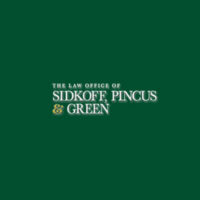Lanham Act’s Ban on Immoral Trademarks is a Violation of the First Amendment, Superior Court Rules
 In the case of Ianco v. Brunetti, the clothing line, FUCT, was denied a trademark for its use of the F-word, even though it is spelled differently. The founder of the clothing company, Erik Brunetti, wanted to trademark FUCT, which stands for “Friends U Can’t Trust,” but the application was denied by the U.S. Patent and Trademark Office because the brand name was considered vulgar. However, the U.S. Supreme Court ruled in favor of the clothing brand and found that the Lanham Act’s ban on scandalous trademarks is a violation of the First Amendment.
In the case of Ianco v. Brunetti, the clothing line, FUCT, was denied a trademark for its use of the F-word, even though it is spelled differently. The founder of the clothing company, Erik Brunetti, wanted to trademark FUCT, which stands for “Friends U Can’t Trust,” but the application was denied by the U.S. Patent and Trademark Office because the brand name was considered vulgar. However, the U.S. Supreme Court ruled in favor of the clothing brand and found that the Lanham Act’s ban on scandalous trademarks is a violation of the First Amendment.
Justice Elena Kagan wrote the majority opinion, which stated that the law violated the First Amendment rights of artist Erik Brunetti. The Justice Department tried to limit the meaning of “scandalous” to only cover names that are sexually explicit, but Kagan said that the Lanham Act covers all scandalous and immoral ideas. Therefore, denying the trademark for Brunetti’s clothing brand violates the First Amendment. Justices Clarence Thomas, Ruth Bader Ginsburg, Samuel A. Alito Jr., Neil M. Gorsuch and Brett Kavanaugh endorsed the opinion.
According to Justice Kagan, the Lanham Act’s ban on immoral trademarks favors ideas that are socially acceptable and rejects those that provoke offense and condemnation. For example, the U.S. Patent and Trademark Office rejected a trademark for “You can’t spell healthcare without the THC,” which was a suggested tagline for a pain-relief medication. However, it approved a trademark for “Say no to drugs – reality is the trip in life.” It also rejected a trademark for “Madonna” for a wine label but approved “Jesus died for you” on t-shirts and other clothing items.
In a separate concurrence written by Justice Alito, he wrote that it is crucial that the court stand firm on the principle that the First Amendment will not tolerate viewpoint discrimination, particularly at a time when free speech is under attack. He went on to say that the Court’s decision does not prevent Congress from passing statutes that ban registration of trademarks that may contain “vulgar terms that play no real part in the expression of ideas.”
In dissents written by Chief Justice John G. Roberts and Justices Sonia Sotomayor and Stephen G. Breyer, the justices said that the ban on scandalous trademarks did not violate the First Amendment when only addressing obscenity, vulgarity and profanity. Sotomayor said that the decision will limit the government’s power to refuse trademarks that contain extremely vulgar and obscene words.
Philadelphia Business Lawyers at the Law Office of Sidkoff, Pincus & Green P.C. Assist Clients with Trademark Issues
If your trademark application was denied, or your First Amendment rights have been violated, contact the Philadelphia business lawyers at the Law Office of Sidkoff, Pincus & Green P.C. Our skilled legal team will review the details of your case and ensure that your rights are protected as we work to resolve your trademark dispute. To schedule a confidential consultation, call us today at 215-574-0600 or contact us online. From our offices in Philadelphia, we represent clients across Pennsylvania and New Jersey.















